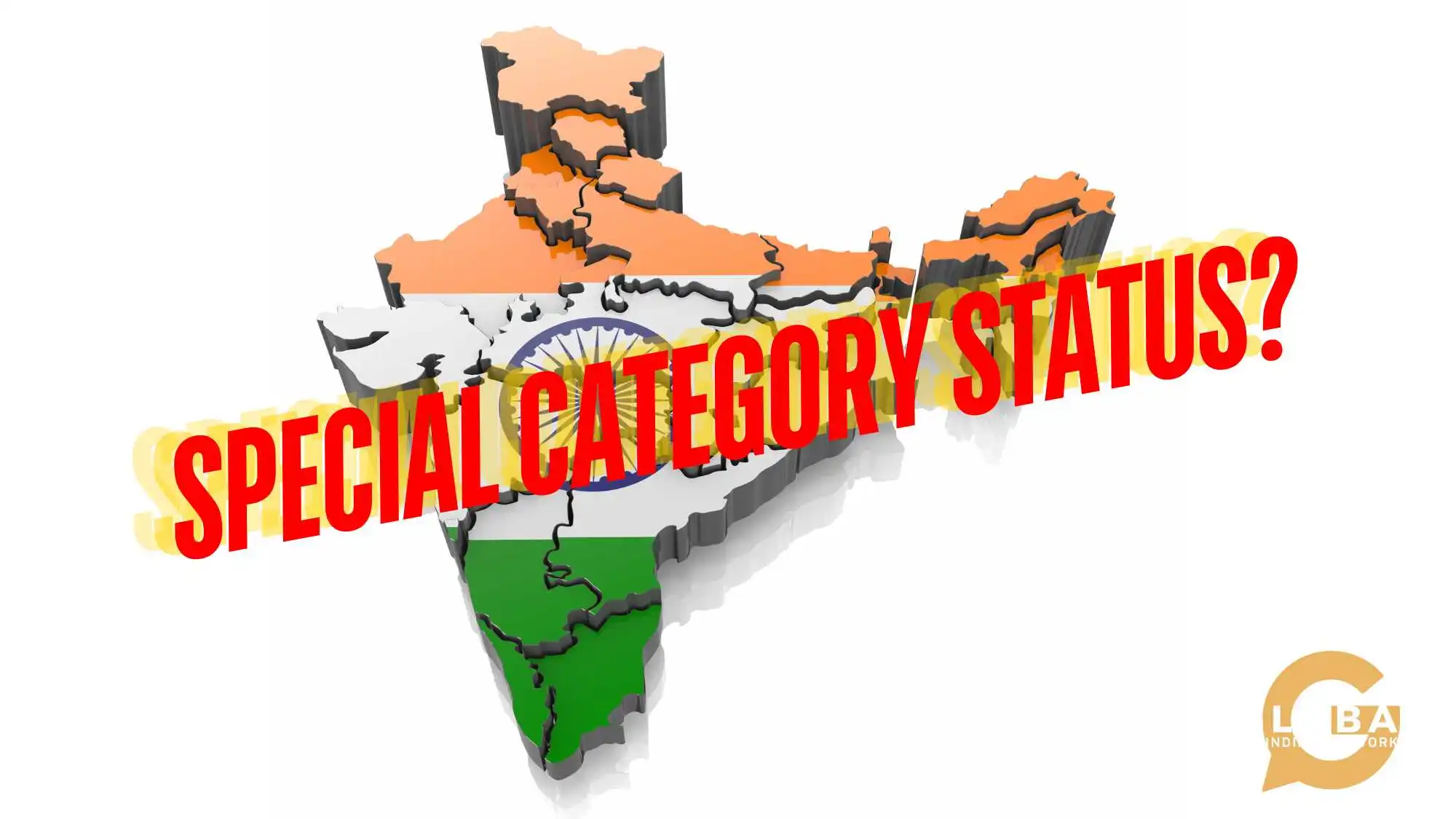If you do not take an interest in politics, then be prepared for surprises. This is being said in the context of the recently concluded 2024 Loksabha elections in India. The Bharatiya Janata Party has not won a majority and is in the process of allying with regional parties to form the government.
This is the best time to throw light on the Special Category Status of states in India, now that the election results are over and wheeling and dealing is currently happening in New Delhi.
Table of Contents
Special Category Status Criteria
Special Category Status (SCS) is a classification given by the central government to assist the development of states that face geographical and socio-economic disadvantages. This status was first introduced in 1969 by the Fifth Finance Commission and is granted to states that meet certain criteria, including:
Hilly terrain: The state must have hilly and challenging terrain.
Low population density and/or sizeable share of tribal population: The state must have low population density and/or a significant share of tribal population.
Strategic location along borders with neighbouring countries: The state must be strategically located along borders with neighbouring countries.
Economic and infrastructure backwardness: The state must be economically and infrastructurally backwards.
Nonviable nature of state finances: The state must have non-viable state finances.
Special Category Status States in India
So, which are the states that have this privilege? They are Assam, Nagaland, Himachal Pradesh, Manipur, Meghalaya, Sikkim, Tripura, Arunachal Pradesh, Mizoram, Uttarakhand, and Telangana.
Benefits to States
SCS states receive higher central assistance for development projects, including infrastructure, education, and healthcare. SCS states receive a preferential allocation of central funds, with 90% of state expenditure on centrally-sponsored schemes and external aid and the remaining 10% given as a zero per cent interest loan. They also enjoy tax breaks and incentives to attract industries, promoting investment and economic growth. SCS promotes infrastructure development, reducing regional disparities and ensuring all states participate in India’s growth story. It also contributes to uniform growth by addressing specific challenges and preventing resource concentration in prosperous states.
Impact on Employment Generation
Special Category Status (SCS) significantly impacts employment generation in eligible states. Here are some ways it benefits these states:
The National Career Service (NCS) project enhances employment opportunities by providing career-related services like job matching, vocational guidance, and skill development information through the National Employment Service.
Mahatma Gandhi National Rural Employment Guarantee Act (MGNREGA) ensures at least 100 days of wage employment for rural households volunteering for unskilled manual work, contributing to job creation in rural areas.
SCS encourages industrialization through lower GST rates and incentives, fostering job creation and economic growth, particularly in tribal-dominated regions with low industrial development.
Success Stories
Special Category Status (SCS) implementation has been successful in Himachal Pradesh and Meghalaya, leading to growth in infrastructure development, improved healthcare and education, and increased funding for these sectors. Meghalaya also received substantial funding for infrastructure development, improving connectivity and accessibility. Uttarakhand and Telangana have experienced significant growth in tourism and infrastructure development, with increased funding facilitating healthcare and education improvements in these states.
Criticisms on SCS
The Special Category Status (SCS) in India has been a subject of controversy due to its criticism of regional disparities, fiscal Federalism challenges, and the potential for dependency syndrome. Critics argue that SCS perpetuates regional disparities by concentrating resources in a few states, undermining cooperative federalism principles, and discouraging states from self-reliance by excessively relying on central funds.
Critics argue that the subjective criteria for State Capital Structures (SCS) are insufficient to address unique challenges faced by states and that uniform tax policies would create a level playing field for all states.
Recent Developments
Since 2007, Bihar and Andhra Pradesh in India have been requesting Special Category Status (SCS), with the TDP advocating since 2017 and the JD(U) demanding it since 2007. The recent Lok Sabha elections and the establishment of the National Democratic Alliance (NDA) government have reaffirmed these demands. The Janata Dal (United), led by Chief Minister Nitish Kumar, is demanding SCS for Bihar to increase government representation. Telugu Desam Party leader N. Chandrababu Naidu is a proponent of the State Category Status (SCS) for Andhra Pradesh’s development.
This development is unfurling at the Centre, and we will update you with the news.
Conclusion
Special Category Status (SCS) in India promotes balanced growth by providing resources to states in need, reducing regional disparities, and promoting overall national growth. It addresses unique challenges faced by specific states, promotes inclusive development, and ensures balanced growth across regions. India is the country with the largest population in the world and is in the throes of becoming the fourth-largest economy. In its development, it is only fair to see that it should be inclusive enough to bridge the inequality divide that the country suffers from.









